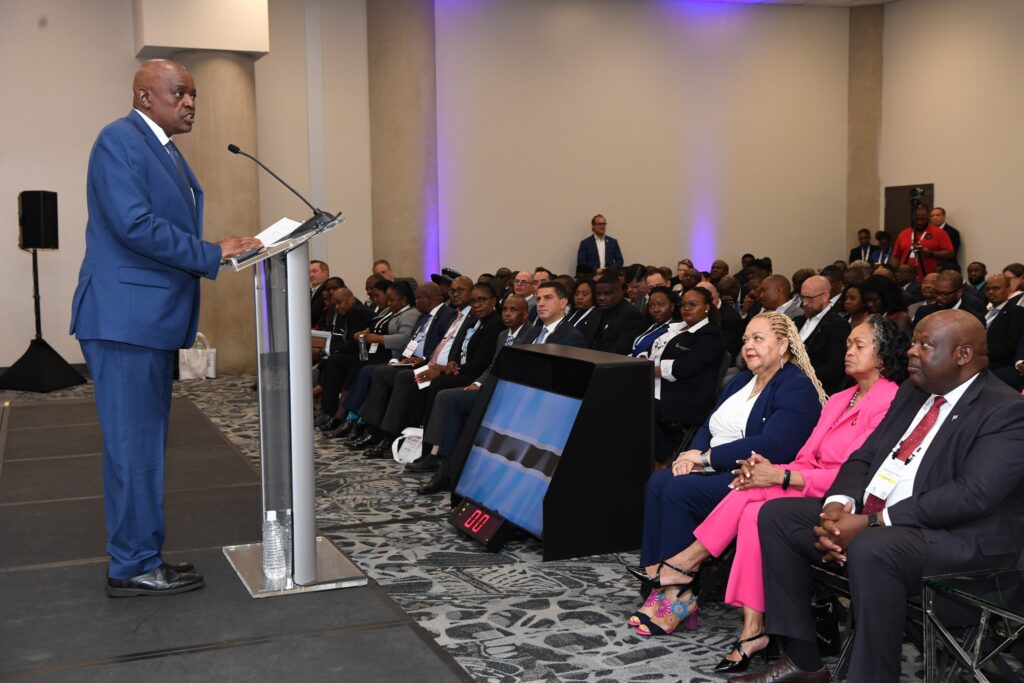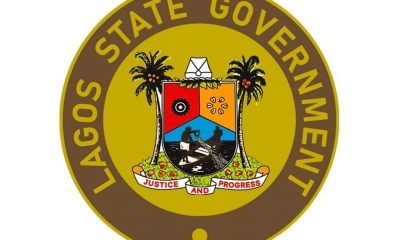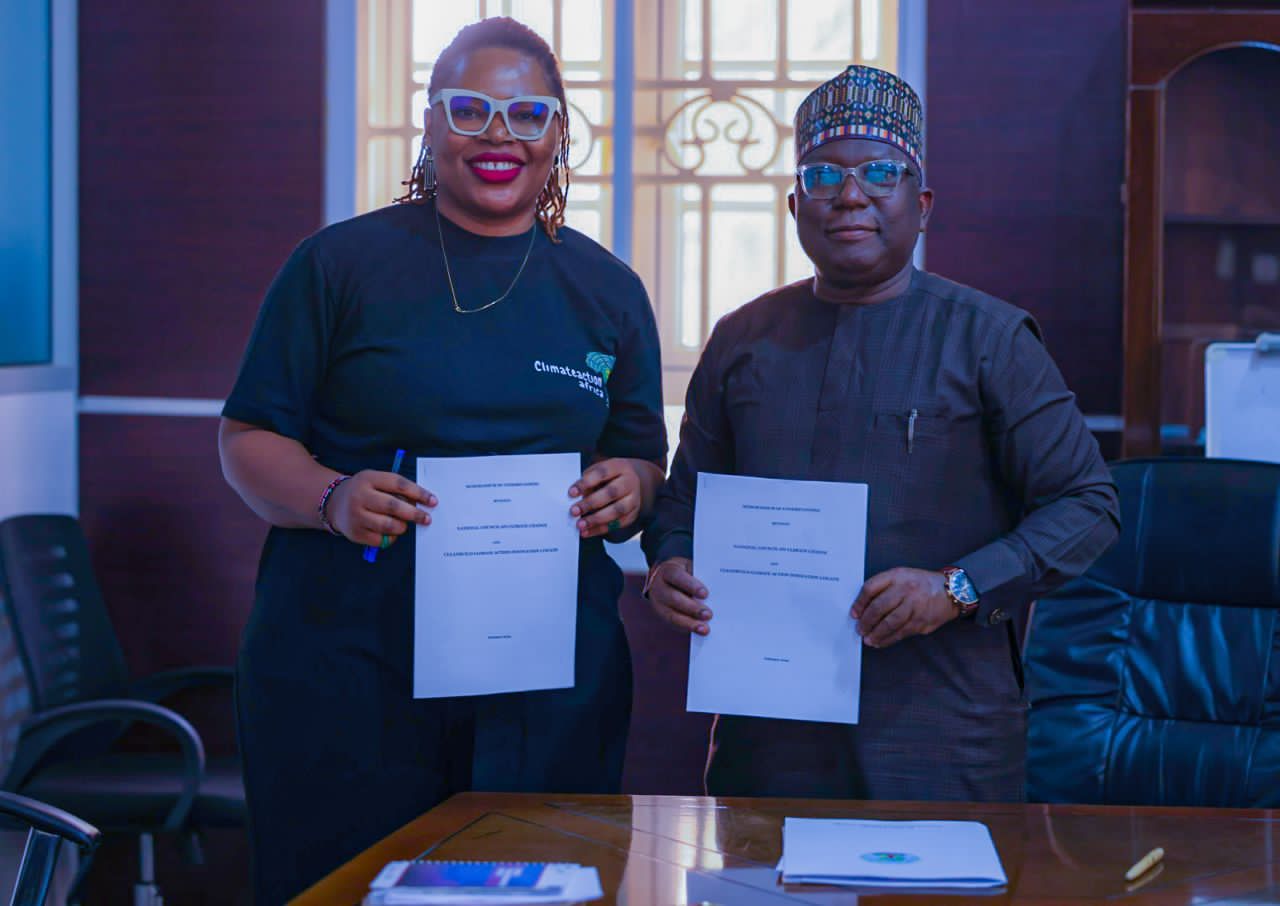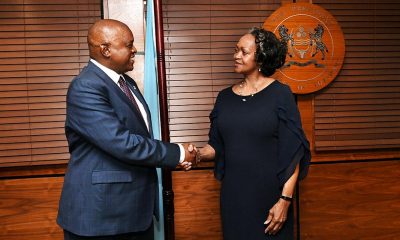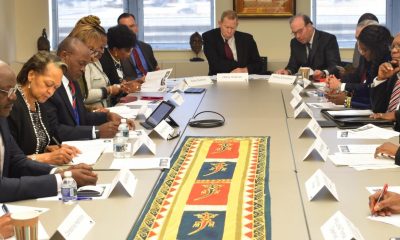World
US Investors to Explore Opportunities in AfCFTA
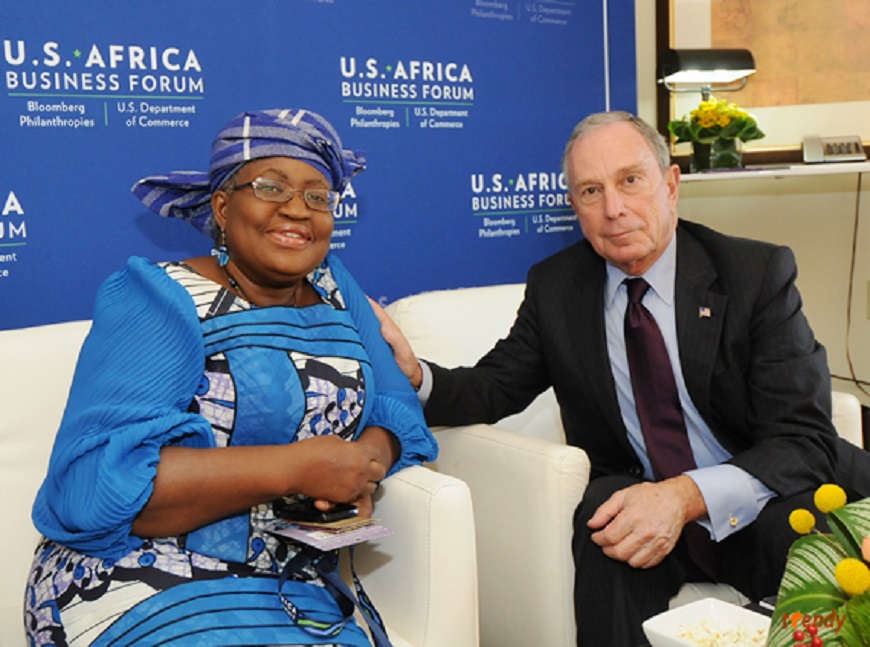
By Kester Kenn Klomegah
United States investors are looking to explore the several opportunities in the African Continental Free Trade Area (AfCFTA), a policy signed by African countries to make the continent a single market.
Speaking at the 13th US-Africa Business Summit organised by the Corporate Council on Africa (CCA), a leading reputable American business association, the investors said there are ways the continent can benefit from them, including in sectors like pharmaceuticals, automobiles, agro-processing and financial technology.
The US government and private sector leaders, together with African political and corporate business leaders, have been working consistently over these years to share insights on critical issues and policies influencing the US-Africa economic partnership.
The three-day summit held virtually included five plenaries and 12-panel sessions highlighting key economic recovery strategies and focused on a range of sectors and issues, including health and vaccine access, trade, digital transformation, infrastructure, financing, small and medium scale enterprises, tourism, women’s leadership and investment opportunities in various African countries.
The high-level dialogue set the scene for reviewing the opportunities for the United States and African public and private sector leaders, how to strengthen the economic partnership between the United States and Africa. Prosper Africa, investments in key sectors such as gas, exploration of possible new bilateral trade agreements, extension of the African Growth and Opportunity Act (AGOA).
Driving Inclusive Recovery
The United States said it will drive a pandemic recovery and put women at the forefront. It has contributed 25 million vaccines for Africa. It implies making sure to incorporate women’s perspectives in their efforts. “When women are empowered, they empower their families, they empower their communities and they empower their countries.”
Thokozile Ruzvidzo, Director of the Gender, Poverty and Social Policy Division, United Nations Economic Commission for Africa (UNECA) said that there are six critical things for women to benefit from AfCFTA.
These include: closing the gender gap as it relates to access to finance, empowering women in the export sector, regional value chains and procurement and ensuring that we include the voice of women in the AfCFTA implementation efforts.
Strong US-Africa Trade Relationship
The US investors hope to focus on a range of issues, from implementing the AfCFTA, boosting Africa’s trade with the US including through AGOA, pursuing agreements that go beyond AGOA, such as the US-Kenya FTA. It will be pursuing public-private partnerships that support the US and African businesses, including women-owned and led SMEs.
The US Trade Representative, Katherine Tai, noted that this is among the top priorities for the Biden-Harris Administration the defeat of COVID and helping facilitate a robust global economic recovery.
She pointed to trade as a key part of that effort and the determination to implement policies that benefit not only those at the top but foster inclusive and sustainable development, supports regional integration, and ensure that all citizens benefit from the global economy.
At the event, Wamkele Mene, Secretary-General of the AfCFTA Secretariat, highlighted the significant progress that has been made in advancing the AfCFTA — with 40 countries that have now ratified the agreement, Phase 1 covering trade in goods and services concluded, and 86% of the rules of origin completed.
He noted that “AfCFTA has unlocked value chains for investors – especially US investors – in key sectors such as pharmaceuticals, automobiles, agro-processing, and financial technology.”
On his part, the Ethiopian Airlines CEO, Mr Tewolde GebreMariam, noted that as the largest air cargo carrier in Africa with hubs in countries across the continent and the airline is successfully connecting Africa with the rest of the world – both for cargo and for passengers and tourism. He urged, though, that more be done to facilitate increased investment, trade and tourism in Africa and to support the AfCFTA vision and goals.
The Assistant US Trade Representative, Ms Constance Hamilton, noted that the US trade policy now transforms beyond AGOA, noting that under the Biden-Harris Administration, they will be ramping up engagement with the AfCFTA Secretariat to support African regional integration, while looking to build stronger relationships with willing African nations through bilateral engagement.
She noted the plans to hold a Trade Ministerial conference in 2021 and to engage with a range of stakeholders to explore ways to enhance the US-Africa trade relationship.
Infrastructure Development
At the event, participants highlighted the growing financing gap in Africa and the importance of renewed public-private partnerships in the development of infrastructure projects.
Minister de Lille of South Africa and Serge Ekue of the West African Development Bank and other panellists suggested that a way to address those flaws is to “implement rigorous master planning that will first help identify bankable projects and then prepare them efficiently while raising local capacity.”
“Infrastructure is not just about the value of the money. It is about the value of the social impact on our communities. These indicated that countries pursue ways to bridge financing infrastructure in Africa,” they submitted.
Beyond COVID-19
Stakeholders at the seminal agreed that it was important to invest in sustainable approaches that bring services close to the patients. These include strong primary healthcare (PHC) as the foundation for strengthening health systems, including the integration of services with a multi-disciplinary team.
Looking forward, it was said that there are opportunities for impact investing in health in Africa by deploying financial resources that can have financial returns/commercial opportunities while improving health outcomes.
Closing Trade Finance Gap
The event gap participants the avenue to discuss the trade finance gap with African, Diaspora, SMEs and women-owned businesses and how organizations can contribute to reduce (or eliminate) the gap.
Participants discussed the impact of the pandemic on their organizations and initiatives contributing to economic activity recovery, as well as improving business operations. Panellists also highlighted the importance of diversifying both suppliers and clients, in addition to looking beyond the immediate market to new partnerships.
The diverse panel emphasized the growing trend of digitalization of SMEs and African business operations. Moving to digital and connected operations will help businesses not only simplify operations but also allow them to reach customers in places they were not able to operate before. This also will positively impact the relationship between Diaspora businesses and businesses on the continent.
They concluded that implementing strategies that will enable African SMEs to grow, build capacity, find new U.S. partners, and access cheap and easily available capital will be crucial to close the trade finance gap.
Sustainable Agribusiness Ecosystem
Participants at this meeting agreed that diversification was the way to improve the agribusiness sector. Collaboration between US and African companies will help achieve sustainable development through increased access to investment financing and access to global markets for African companies, they opined.
However, it was stressed that achieving diversification will require producing more value-added products, which will be achieved through investment in industrialization, R&D, and technology.
Public-Private Partnerships (PPP) and favourable government policies will be key to funding these efforts, they further stated, noting that investing in SMEs will be vital to improving agribusiness value chains since SMEs are deeply integrated at every level from retailers to crop transporters while helping scale up these SME’s make the value-chains more productive and improve the sector’s output.
Digital Transformation
Speaking at the programme, the South African Minister of Trade, Industry, and Competition, Ebrahim Patel, noted that digital technology remains a critical tool and a critical enabler to build economic growth and economic opportunities.
The Minister said digital technologies will help create new products and new markets for millions of Africans. Policymakers, corporations, and entrepreneurs have a unique partnership opportunity to develop digital infrastructure, skills, and ecosystems.
Minister Patel invited the private sector to share ideas and suggestions to make the AfCFTA e-commerce protocol fit for its purpose.
It was agreed that the COVID-19 pandemic has transformed the digitalization of life and work. As a result, technology companies are developing lifesaving products and services.
For example, Google and Apple developed exposure notification technology, which helps slow the spread of COVID-19. Google also developed a range of products for remote education.
As African businesses and consumers have shifted towards e-commerce and digital payments, companies like Visa have accelerated the rollout of payment infrastructure.
For digital trade and the digital economy to work effectively, panellists recommended that the AfCFTA be implemented to establish a continent-wide harmonization of business-friendly rules and regulations.
Future of Energy in Africa
During the summit, high-level participants from the US government, African countries and the private sector discussed the need for public-private sector collaboration on energy transition in Africa and innovative thinking on the critical need to address energy poverty and access to electricity in Africa while advancing the urgent fight against global warming.
Joining US Special Presidential Envoy for Climate, John Kerry, from the USG were senior US government officials from the Departments of Energy and State, and the US Development Finance Corporation (DFC).
Also participating in the dialogue were Ministers of Energy and senior African officials from Angola, Egypt, Ghana, Mozambique, Nigeria, and Senegal, as well as CEOs and other top executives from a range of U.S. and African oil, gas, and power companies and major investors in the sector.
In his presentation, Mr Kerry stated that tackling climate change is a top priority for the United States and reiterated the US government commitment to encouraging other countries to achieve their respective climate and clean energy goals.
It was noted that more African countries need to sign on to the Paris Agreement to tackle climate change as it is important that all countries work together to address global climate change.
Other US government officials acknowledged energy poverty in Africa and noted that improving energy access in Africa is paramount to the US government as it continues to invest in electricity systems in Africa through initiatives like Power Africa.
They also noted that even while the United States is pushing for a strong political commitment from African to prioritizing and meeting climate change goals, the US government will continue to support and finance energy projects (including some in gas) in Africa, particularly where renewable energy options may not be viable.
African Ministers and government officials shared the strategies they have adopted in their respective countries to both adopt clean energy technologies in oil and gas, while also investing in renewable energy options.
In Senegal, Egypt and Angola, renewable energy is at the forefront of energy transition strategies and initiatives, and it was noted that collaborations with international partners are essential to achieving long term energy and climate change goals in Africa.
CEOs and senior executives of companies with operations in Africa who participated in the session highlighted that they are actively working on energy access in Africa, see gas (particularly abated gas) as a medium-term, low-cost transition option to address climate change, while some are also investing in and financing renewable energy projects in Africa.
There were calls for fair treatment of Africa, in terms of climate change, as well as for the US government to prioritize development over climate change when it comes to Africa, and to continue financing gas projects in Africa for the next 5-7 years, which some thought could actually help meet climate goals faster as Africans (especially those in rural areas) shift from wood burning to use of gas to cook.
Noting the complexity of these energy issues, many agreed that public-private partnerships are crucial to renewable energy transitions, and thought that further dialogues like this one leading up to the COP 26 talks scheduled to take place in Glasgow in November 2021 would be crucial in the US and Africans reaching a common understanding about the way forward on the future of energy and climate in Africa.
Looking Forward
The US government said the Biden-Harris Administration was prioritizing economic relationships with Africa.
Dana Banks, White House Senior Director for Africa, announced the White House Administration made a request for $80 million in additional funding to push for the Prosper Africa Build Together Campaign that will drive billions of dollars of investment in Africa, build new markets for American products and create thousands of jobs for African and American workers.
World
AfBD, AU Renew Call for Visa-Free Travel to Boost African Economic Growth

By Adedapo Adesanya
The African Development Bank (AfDB) and the African Union have renewed their push for visa-free travel to accelerate Africa’s economic transformation.
The call was reinforced at a High-Level Symposium on Advancing a Visa-Free Africa for Economic Prosperity, where African policymakers, business leaders, and development institutions examined the need for visa-free travel across the continent.
The consensus described the free movement of people as essential to unlocking Africa’s economic transformation under the African Continental Free Trade Area (AfCFTA).
The symposium was co-convened by AfDB and the African Union Commission on the margins of the 39th African Union Summit of Heads of State and Government in Addis Ababa.
The participants framed mobility as the missing link in Africa’s integration agenda, arguing that while tariffs are falling under AfCFTA, restrictive visa regimes continue to limit trade in services, investment flows, tourism, and labour mobility.
On his part, Mr Alex Mubiru, Director General for Eastern Africa at the African Development Bank Group, said that visa-free travel, interoperable digital systems, and integrated markets are practical enablers of enterprise, innovation, and regional value chains to translate policy ambitions into economic activity.
“The evidence is clear. The economics support openness. The human story demands it,” he told participants, urging countries to move from incremental reforms to “transformative change.”
Ms Amma A. Twum-Amoah, Commissioner for Health, Humanitarian Affairs and Social Development at the African Union Commission, called for faster implementation of existing continental frameworks.
She described visa openness as a strategic lever for deepening regional markets and enhancing collective responses to economic and humanitarian crises.
Former AU Commission Chairperson, Ms Nkosazana Dlamini-Zuma, reiterated that free movement is central to the African Union’s long-term development blueprint, Agenda 2063.
“If we accept that we are Africans, then we must be able to move freely across our continent,” she said, urging member states to operationalise initiatives such as the African Passport and the Free Movement of Persons Protocol.
Ghana’s Trade and Industry Minister, Mrs Elizabeth Ofosu-Adjare, shared her country’s experience as an early adopter of open visa policies for African travellers, citing increased business travel, tourism, and investor interest as early dividends of greater openness.
The symposium also reviewed findings from the latest Africa Visa Openness Index, which shows that more than half of intra-African travel still requires visas before departure – seen by participants as a significant drag on intra-continental commerce.
Mr Mesfin Bekele, Chief Executive Officer of Ethiopian Airlines, called for full implementation of the Single African Air Transport Market (SAATM), saying aviation connectivity and visa liberalisation must advance together to enable seamless travel.
Regional representatives, including Mr Elias Magosi, Executive Secretary of the Southern Africa Development Community, emphasised the importance of building trust through border management and digital information-sharing systems.
Ms Gabby Otchere Darko, Executive Chairman of the Africa Prosperity Network, urged governments to support the “Make Africa Borderless Now” campaign, while tourism campaigner Ras Mubarak called for more ratifications of the AU Free Movement of Persons protocol.
Participants concluded that achieving a visa-free Africa will require aligning migration policies, digital identity systems, and border infrastructure, alongside sustained political commitment.
World
Nigeria Exploring Economic Potential in South America, Particularly Brazil

By Kestér Kenn Klomegâh
In this interview, Uche Uzoigwe, Secretary-General of NIDOA-Brazil, discusses the economic potential in South America, particularly Brazil, and investment incentives for Brazilian corporate partners for the Federal Republic of Nigeria (FRN). Follow the discussion here:
How would you assess the economic potential in the South American region, particularly Brazil, for the Federal Republic of Nigeria? What investment incentives does Nigeria have for potential corporate partners from Brazil?
As the Secretary of NIDOA Brazil, my response to the questions regarding the economic potentials in South America, particularly Brazil, and investment incentives for Brazilian corporate partners would be as follows:
Brazil, as the largest economy in South America, presents significant opportunities for the Federal Republic of Nigeria. The country’s diverse economy is characterised by key sectors such as agriculture, mining, energy, and technology. Here are some factors to consider:
- Natural Resources: Brazil is rich in natural resources like iron ore, soybeans, and biofuels, which can be beneficial to Nigeria in terms of trade and resource exchange.
- Growing Agricultural Sector: With a well-established agricultural sector, Brazil offers potential collaboration in agri-tech and food security initiatives, which align with Nigeria’s goals for agricultural development.
- Market Size: Brazil boasts a large consumer market with a growing middle class. This represents opportunities for Nigerian businesses looking to export goods and services to new markets.
- Investment in Infrastructure: Brazil has made significant investments in infrastructure, which could create opportunities for Nigerian firms in construction, engineering, and technology sectors.
- Cultural and Economic Ties: There are historical and cultural ties between Nigeria and Brazil, especially considering the African diaspora in Brazil. This can facilitate easier business partnerships and collaborations.
In terms of investment incentives for potential corporate partners from Brazil, Nigeria offers several attractive incentives for Brazilian corporate partners, including:
- Tax Incentives: Various tax holidays and concessions are available under the Nigerian government’s investment promotion laws, particularly in key sectors like agriculture, manufacturing, and technology.
- Repatriation of Profits: Brazil-based companies investing in Nigeria can repatriate profits without restrictions, thus enhancing their financial viability.
- Access to the African Market: Investment in Nigeria allows Brazilian companies to access the broader African market, benefiting from Nigeria’s membership in regional trade agreements such as ECOWAS.
- Free Trade Zones: Nigeria has established free trade zones that offer companies the chance to operate with reduced tariffs and fewer regulatory burdens.
- Support for Innovation: The Nigerian government encourages innovation and technology transfer, making it attractive for Brazilian firms in the tech sector to collaborate, particularly in fintech and agriculture technology.
- Collaborative Ventures: Opportunities exist for joint ventures with local firms, leveraging local knowledge and networks to navigate the business landscape effectively.
In conclusion, fostering a collaborative relationship between Nigeria and Brazil can unlock numerous economic opportunities, leading to mutual growth and development in various sectors. We welcome potential Brazilian investors to explore these opportunities and contribute to our shared economic goals.
In terms of this economic cooperation and trade, what would you say are the current practical achievements, with supporting strategies and systemic engagement from NIDOA?
As the Secretary of NIDOA Brazil, I would highlight the current practical achievements in economic cooperation and trade between Nigeria and Brazil, alongside the supporting strategies and systemic engagement from NIDOA.
Here are some key points:
Current Practical Achievements
- Increased Bilateral Trade: There has been a notable increase in bilateral trade volume between Nigeria and Brazil, particularly in sectors such as agriculture, textiles, and technology. Recent trade agreements and discussions have facilitated smoother trade relations.
- Joint Ventures and Partnerships: Successful joint ventures have been established between Brazilian and Nigerian companies, particularly in agriculture (e.g., collaboration in soybean production and agricultural technology) and energy (renewables, oil, and gas), demonstrating commitment to mutual development.
- Investment in Infrastructure Development: Brazilian construction firms have been involved in key infrastructure projects in Nigeria, contributing to building roads, bridges, and facilities that enhance connectivity and economic activity.
- Cultural and Educational Exchange Programs: Programs facilitating educational exchange and cultural cooperation have led to strengthened ties. Brazilian universities have partnered with Nigerian institutions to promote knowledge transfer in various fields, including science, technology, and arts.
Supporting Strategies
- Strategic Trade Dialogue: NIDOA has initiated regular dialogues between trade ministries of both nations to discuss trade barriers, potential markets, and cooperative opportunities, ensuring both countries are aligned in their economic goals.
- Investment Promotion Initiatives: Targeted initiatives have been established to promote Brazil as an investment destination for Nigerian businesses and vice versa. This includes showcasing success stories at international trade fairs and business forums.
- Capacity Building and Technical Assistance: NIDOA has offered capacity-building programs focused on enhancing Nigeria’s capabilities in agriculture and technology, leveraging Brazil’s expertise and sustainable practices.
- Policy Advocacy: Continuous advocacy for favourable trade policies has been a key focus for NIDOA, working to reduce tariffs and promote economic reforms that facilitate investment and trade flows.
Systemic Engagement
- Public-Private Partnerships (PPPs): Engaging the private sector through PPPs has been essential in mobilising resources for development projects. NIDOA has actively facilitated partnerships that leverage both public and private investments.
- Trade Missions and Business Delegations: Organised trade missions to Brazil for Nigerian businesses and vice versa, allowing for direct engagement with potential partners, fostering trust and opening new channels for trade.
- Monitoring and Evaluation: NIDOA implements a rigorous monitoring and evaluation framework to assess the impact of various initiatives and make necessary adjustments to strategies, ensuring effectiveness in achieving economic cooperation goals.
Through these practical achievements, supporting strategies, and systemic engagement, NIDOA continues to play a pivotal role in enhancing economic cooperation and trade between Nigeria and Brazil. By fostering collaboration and leveraging shared resources, we aim to create a sustainable and mutually beneficial economic environment that promotes growth for both nations.
Do you think the changing geopolitical situation poses a number of challenges to connecting businesses in the region with Nigeria, and how do you overcome them in the activities of NIDOA?
The changing geopolitical situation indeed poses several challenges for connecting businesses in the South American region, particularly Brazil, with Nigeria. These challenges include trade tensions, shifting alliances, currency fluctuations, and varying regulatory environments. Below, I will outline some of the specific challenges and how NIDOA works to overcome them:
Current Challenges
- No Direct Flights: This challenge is obviously explicit. Once direct flights between Brazil and Nigeria become active, and hopefully this year, a much better understanding and engagement will follow suit.
- Trade Restrictions and Tariffs: Increasing trade protectionism in various regions can lead to higher tariffs and trade barriers that hinder the movement of goods between Brazil and Nigeria.
- Currency Volatility: Fluctuations in the value of currencies can complicate trade agreements, pricing strategies, and overall financial planning for businesses operating in both Brazil and Nigeria.
- Different regulatory frameworks and compliance requirements in both countries can create challenges for businesses aiming to navigate these systems efficiently.
- Supply Chain Disruptions: Changes in global supply chains due to geopolitical factors may disrupt established networks, impacting businesses relying on imports and exports between the two nations.
Overcoming Challenges through NIDOA.
NIDOA actively engages in discussions with both the Brazilian and Nigerian governments to advocate for favourable trade policies and agreements that reduce tariffs and improve trade conditions. This year in October, NIDOA BRAZIL holds its TRADE FAIR in São Paulo, Brazil.
What are the popular sentiments among the Nigerians in the South American diaspora? As the Secretary-General of the NIDOA, what are your suggestions relating to assimilation and integration, and of course, future perspectives for the Nigerian diaspora?
As the Secretary-General of NIDOA, I recognise the importance of understanding the sentiments among Nigerians in the South American diaspora, particularly in Brazil.
Many Nigerians in the diaspora take pride in their cultural roots, celebrating their heritage through festivals, music, dance, and culinary traditions. This cultural expression fosters a sense of community and belonging.
While many individuals embrace their new environments, they often face challenges related to cultural differences, language barriers, and social integration, which can lead to feelings of isolation.
Many express optimism about opportunities in education, business, and cultural exchange, viewing their presence in South America as a chance to expand their horizons and contribute to economic activities both locally and back in Nigeria.
Sentiments regarding acceptance vary; while some Nigerians experience warmth and hospitality, others encounter prejudice or discrimination, which can impact their overall experience in the host country. NIDOA BRAZIL has encouraged the formation of community organisations that promote networking, cultural exchange, and social events to foster a sense of belonging and support among Nigerians in the diaspora. There are currently two forums with over a thousand Nigerian members.
Cultural Education and Awareness Programs: NIDOA BRAZIL organises cultural education programs that showcase Nigerian heritage to local communities, promoting mutual understanding and appreciation that can facilitate smoother integration.
Language and Skills Training: NIDOA BRAZIL provides language courses and skills training programs to help Nigerians, especially students in tertiary institutions, adapt to their new environment, enhancing communication and employability within the host country.
Engaging in Entrepreneurship: NIDOA BRAZIL supports the entrepreneurial spirit among Nigerians in the diaspora by facilitating access to resources, mentorship, and networks that can help them start businesses and create economic opportunities.
Through its AMBASSADOR’S CUP COMPETITION, NIDOA Brazil has engaged students of tertiary institutions in Brazil to promote business projects and initiatives that can be implemented in Nigeria.
NIDOA BRAZIL also pushes for increased tourism to Brazil since Brazil is set to become a global tourism leader in 2026, with a projected 10 million international visitors, driven by a post-pandemic rebound, enhanced air connectivity, and targeted marketing strategies.
Brazil’s tourism sector is poised for a remarkable milestone in 2026, as the country expects to welcome over 10 million international visitors—surpassing the previous record of 9.3 million in 2025. This expected surge represents an ambitious leap, nearly doubling the country’s foreign-arrival numbers within just four years, a feat driven by a combination of pent-up global demand, strategic air connectivity improvements, and a highly targeted marketing campaign.
World
African Visual Art is Distinguished by Colour Expression, Dynamic Form—Kalalb

By Kestér Kenn Klomegâh
In this insightful interview, Natali Kalalb, founder of NAtali KAlalb Art Gallery, discusses her practical experiences of handling Africa’s contemporary arts, her professional journey into the creative industry and entrepreneurship, and also strategies of building cultural partnership as a foundation for Russian-African bilateral relations. Here are the interview excerpts:
Given your experience working with Africa, particularly in promoting contemporary art, how would you assess its impact on Russian-African relations?
Interestingly, my professional journey in Africa began with the work “Afroprima.” It depicted a dark-skinned ballerina, combining African dance and the Russian academic ballet tradition. This painting became a symbol of cultural synthesis—not opposition, but dialogue.
Contemporary African art is rapidly strengthening its place in the world. By 2017, the market was growing so rapidly that Sotheby launched its first separate African auction, bringing together 100 lots from 60 artists from 14 foreign countries, including Algeria, Ghana, Mali, Nigeria, Senegal, and others. That same year during the Autumn season, Louis Vuitton Foundation in Paris hosted a major exhibition dedicated to African art. According to Artnet, sales of contemporary African artists reached $40 million by 2021, a 434% increase in just two years. Today, Sotheby holds African auctions twice a year, and in October 2023, they raised $2.8 million.
In Russia, this process manifests itself through cultural dialogue: exhibitions, studios, and educational initiatives create a space of trust and mutual respect, shaping the understanding of contemporary African art at the local level.
Do you think geopolitical changes are affecting your professional work? What prompted you to create an African art studio?
The international context certainly influences cultural processes. However, my decision to work with African themes was not situational. I was drawn to the expressiveness of African visual language—colour, rhythm, and plastic energy. This theme is practically not represented systematically and professionally in the Russian art scene.
The creation of the studio was a step toward establishing a sustainable platform for cultural exchange and artistic dialogue, where the works of African artists are perceived as a full-fledged part of the global cultural process, rather than an exotic one.
To what extent does African art influence Russian perceptions?
Contemporary African art is gradually changing the perception of the continent. While previously viewed superficially or stereotypically, today viewers are confronted with the depth of artistic expression and the intellectual and aesthetic level of contemporary artists.
Portraits are particularly impactful: they allow us to see not just an abstract image of a “continent,” but a concrete personality, character, and inner dignity. Global market growth data and regular auctions create additional trust in African contemporary art and contribute to its perception as a mature and valuable movement.
Does African art reflect lifestyle and fashion? How does it differ from Russian art?
African art, in my opinion, is at its peak in everyday culture—textiles, ornamentation, bodily movement, rhythm. It interacts organically with fashion, music, interior design, and the urban environment. The Russian artistic tradition is historically more academic and philosophical. African visual art is distinguished by greater colour expression and dynamic form. Nevertheless, both cultures are united by a profound symbolic and spiritual component.
What feedback do you receive on social media?
Audience reactions are generally constructive and engaging. Viewers ask questions about cultural codes, symbolism, and the choice of subjects. The digital environment allows for a diversity of opinions, but a conscious interest and a willingness to engage in cultural dialogue are emerging.
What are the key challenges and achievements of recent years?
Key challenges:
- Limited expert base on African contemporary art in Russia;
- Need for systematic educational outreach;
- Overcoming the perception of African art as exclusively decorative or ethnic.
Key achievements:
- Building a sustainable audience;
- Implementing exhibition and studio projects;
- Strengthening professional cultural interaction and trust in African
contemporary art as a serious artistic movement.
What are your future prospects in the context of cultural diplomacy?
Looking forward, I see the development of joint exhibitions, educational programs, and creative residencies. Cultural diplomacy is a long-term process based on respect and professionalism. If an artistic image is capable of uniting different cultural traditions in a single visual space, it becomes a tool for mutual understanding.
-

 Feature/OPED6 years ago
Feature/OPED6 years agoDavos was Different this year
-
Travel/Tourism10 years ago
Lagos Seals Western Lodge Hotel In Ikorodu
-

 Showbiz3 years ago
Showbiz3 years agoEstranged Lover Releases Videos of Empress Njamah Bathing
-

 Banking8 years ago
Banking8 years agoSort Codes of GTBank Branches in Nigeria
-

 Economy3 years ago
Economy3 years agoSubsidy Removal: CNG at N130 Per Litre Cheaper Than Petrol—IPMAN
-

 Banking3 years ago
Banking3 years agoSort Codes of UBA Branches in Nigeria
-

 Banking3 years ago
Banking3 years agoFirst Bank Announces Planned Downtime
-

 Sports3 years ago
Sports3 years agoHighest Paid Nigerian Footballer – How Much Do Nigerian Footballers Earn


